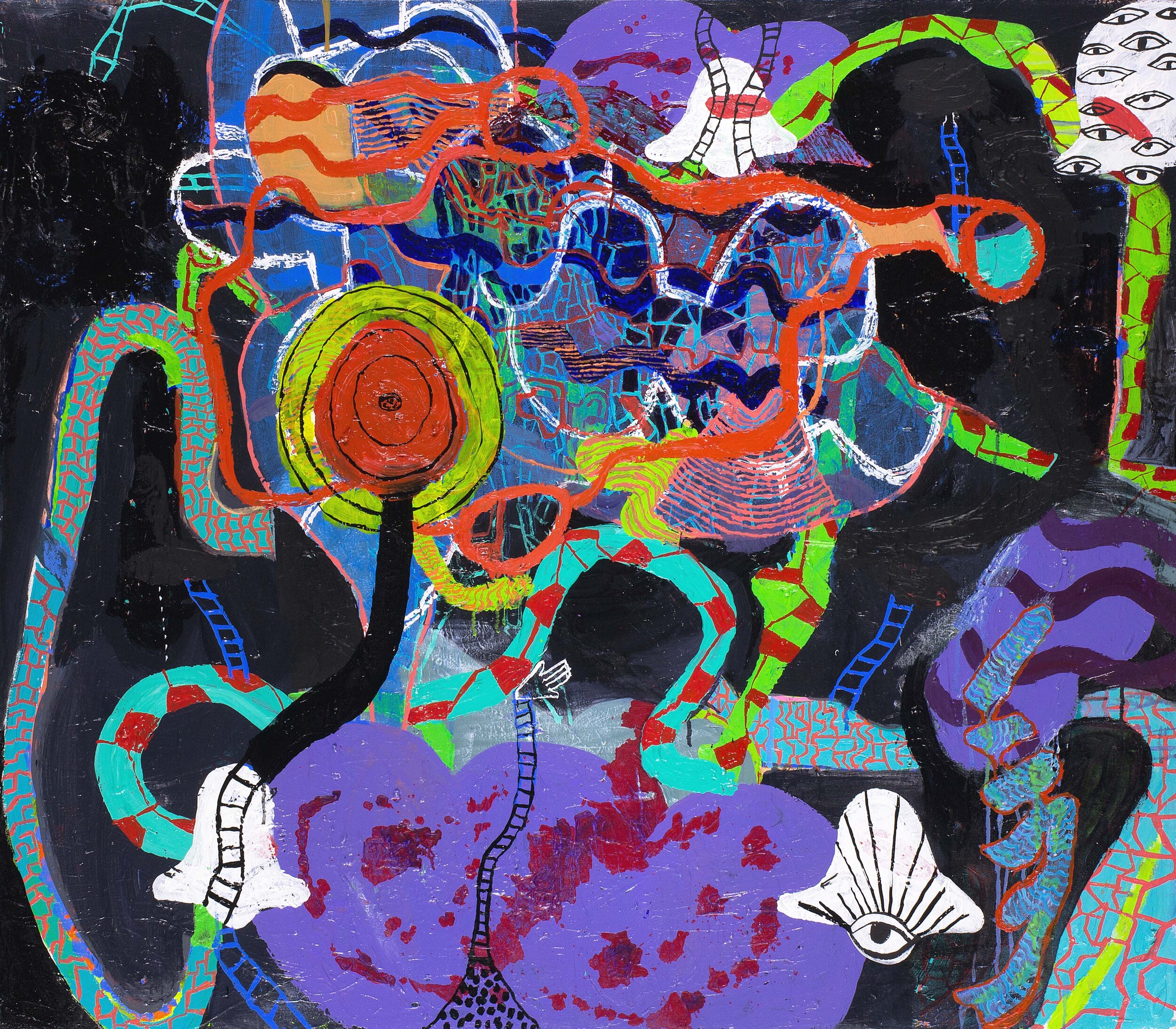Above is the second of three conversations I had with Evan, our poetry reading workshop leader. I am offering a free Zoom workshop on painting on July 25. (No experience or materials necessary.) You can sign up for that by clicking HERE.
My daughter and I just went camping for a few days. We were not in deep woods or in a place I had not been to before, but being outdoors—both the silence and constant wind-chatter of it—was more restful than anything I could remember experiencing.
I had never camped during a pandemic before. I realize now that not only did I enjoy the sounds and the breeze and the campfires and, most of all, my daughter’s company, but a sense of safety three-days long. I remembered what feeling safe feels like.
I am one of those people for whom safety means being able to lead others to peace, something I have not felt confident of for some time. This has made it hard to write. I imagine myself praying in the early morning, standing on our little hill looking out over the scrub oaks to write this……..
Some say we are living in an apocalypse—literally a time of revealing. What I survey from where I stand is a Christian dystopia. I see the last who would be first of whom Jesus spoke moving not upstream, but down. Awareness of who has fallen by the wayside seems to result in their receding further away from me.
Where is redemption, and would I, would we, recognize it if it came? It cannot be merely in a vaccine that confers temporary immunity. There is no way to gain immunity from what is already broken. I know because I have wasted time pretending I can be immune to everything. Rather, I know now, I must try to tend others’ and my own vulnerability—both for Jesus’ sake.
Whatever help we can offer right now seems slight, like wearing a mask. Even we who are careful to wear masks since evidence they protect others has grown find that wearing masks is difficult. It can feel as though the one way we might help someone—by showing an attentive smile—is frustrated by what is supposed to protect them.
I think that, for those of us in helping professions, it can feel as though the purity and respect we carefully cultivate in ourselves as we serve others have been called into question, even sullied. I am at times painfully conscious of wearing a prophylactic on my face.
Rather than feeling glee at re-openings, I feel a sort of first-trimester nausea for the Church universal right now. In the mask-wearing and not wearing I see the very ordinary struggles of the inner life—grandiosity, denial, a longing for freedom, heavenly hope, and both disregard and concern for others, as well as bodily longing to possess glorious facial hair and also the desire to breath well that make mask-wearing difficult.
I sense growth for what my ministry is becoming blindly, while I deny it is reduced to trying to figure out who signed the sign-in sheet “Thomas Jefferson” with no phone number last Sunday. We have a sign-in sheet at services in case we have to do contact tracing as other churches do after Covid outbreaks. I pray we never need the sheets, and I know that we must have them.
Visitors come to the Cathedral often, even now. Thomas Jefferson did not believe in miracles, but maybe in these times he would visit, drag out one of our kneelers, and pray for a miracle for his country. I was angry at his impersonator on Sunday, but I forgave him because we are all created equal, however aware we are of our shared breath and the responsibility we bear each other. Mostly, I was upset because I feel called to love the Cathedral and its people, and I worry about them.
It is a very low Christology, I learned in seminary, that teaches that the miracle of the loaves and the fishes was just that Jesus got people to share. I believe in Jesus’ miracles, but now I doubt that when people exhibit such regard for each other it is much short of miraculous—I think this especially as my own capacity for concern has swelled. Only Jesus could have done that.
Who knew God would bring me here? I know that many of you stand as I stand—never quite at rest—always praying on a little hill in the mind, surveying and loving the place that is your church here or out there—the people you have been called to care for. And that this is true whether you are physically with them or not.
We are still in the wilderness together, needing God to show us the way. Until all is revealed, let us love one another however we can. Please wear a mask in your place of worship, sign in with your correct name, follow the Bishop’s and others’ guidelines, and encourage others to do the same. When at home, please look in the mirror and love the face you see for the rest of us who miss it.


